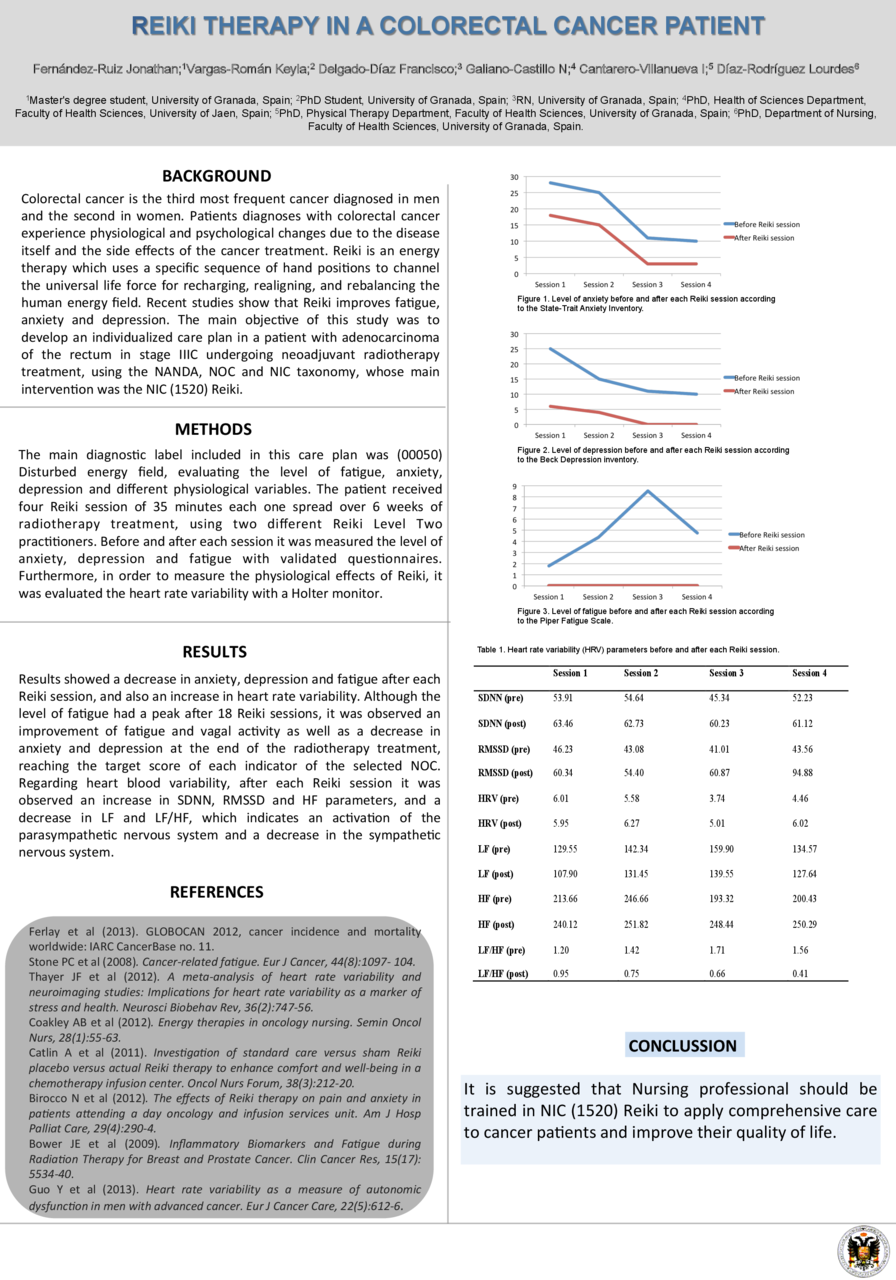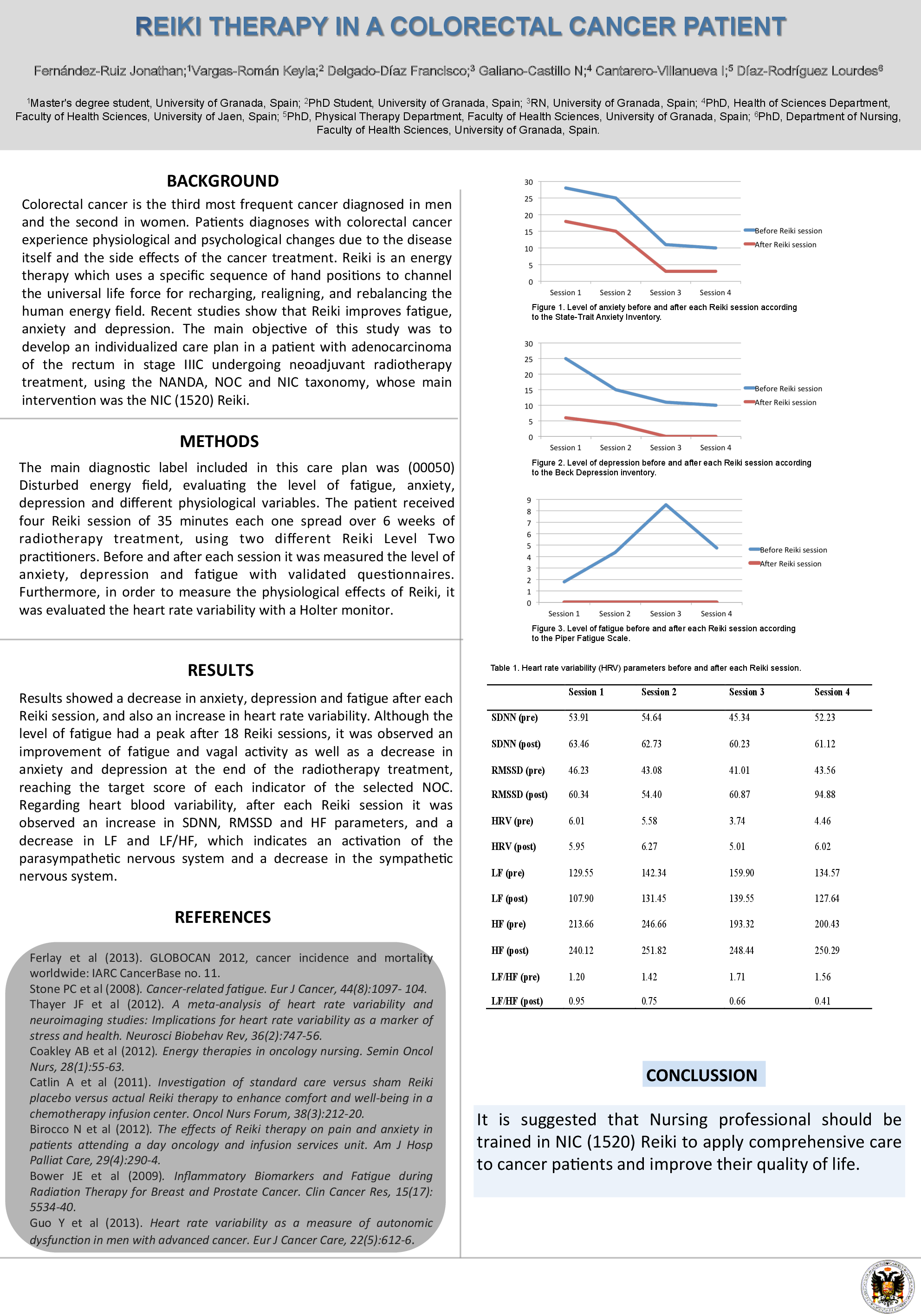Abstract
Background: Patients diagnoses with colorectal cancer show physiological and psychological changes due to the disease itself and the side effects of the cancer treatment. Reiki is an energy therapy, which uses a specific sequence of hand positions to channel the universal life force for recharging, realigning, and rebalancing the human energy field.
Aim & Objectives: The main objective of this study was to develop an individualized care plan in a patient with adenocarcinoma of the rectum in stage IIIC undergoing neoadjuvant radiotherapy treatment, using the NANDA, NOC and NIC taxonomy, whose main intervention was the NIC (1520) Reiki.
Methods/Study Design:
The diagnostic labels included in this care plan were (000155) Risk for falls and (00050) Disturbed energy field, evaluating the level of fatigue (Piper Fatigue Scale), anxiety (State-Trait Anxiety Inventory), depression (Beck questionnaire), heart rate variability (ECG, NoravHolter) and blood pressure (validated automatic oscillometric device).
Results/Findings: Results showed a decrease in heart rate, blood pressure, anxiety, depression and fatigue after each Reiki session, and also an increase in heart rate variability. Furthermore, it was observed an improvement of fatigue and vagal activity as well as a decrease in anxiety and depression at the end of the radiotherapy treatment, reaching the target score of each indicator of the selected NOC.
Conclusion: Thus, it is suggested that Nursing professional should be trained in NIC (1520) Reiki to apply integral care to cancer patients and improve their quality of life.






